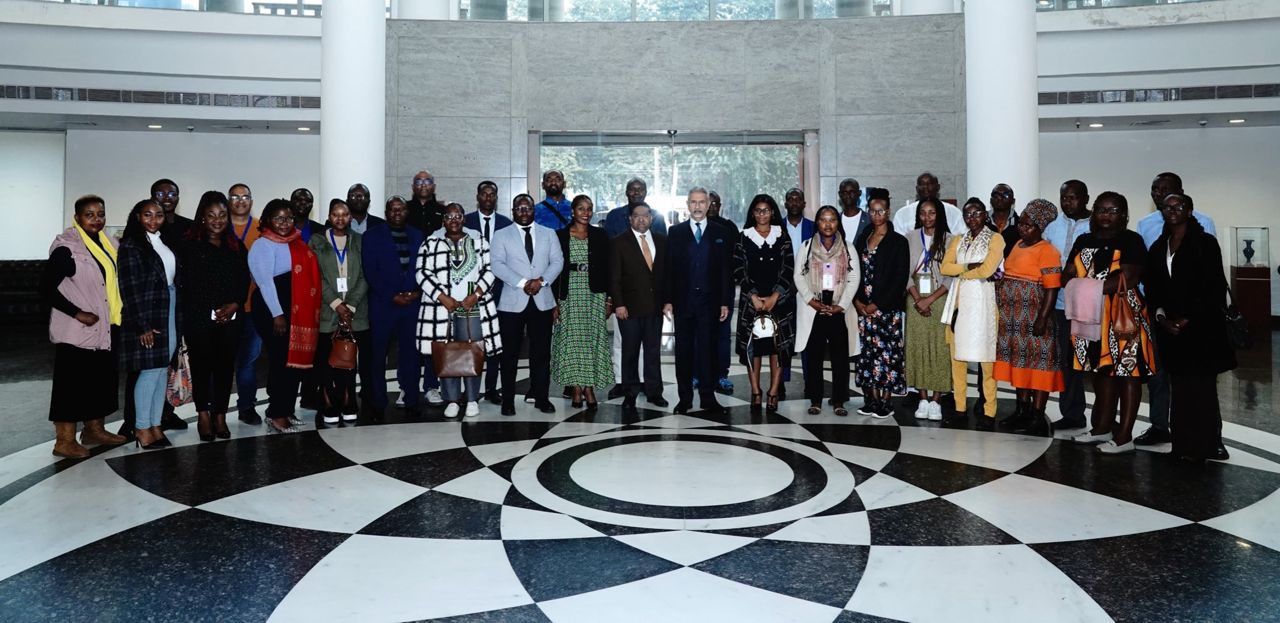JOHANNESBURG – Chinese President Hu Jintao swept through Africa on a charm offensive, showering bounty and portraying Beijing as a benefactor of the world’s poorest region but the pitch has failed to silence critics.
Hu’s eight-nation swing, starting from Cameroon in western Africa and ending in the Indian Ocean Seychelles islands, was marked by China’s largesse of hundreds of millions of dollars and debt waivers. China’s burgeoning economic presence in several African nations has sparked criticism that it was only interested in plundering the continent’s vast natural resources and oil to feed its economic boom, although South Africa, the continent’s economic powerhouse, echoed Hu’s assessment that the relationship was a “win-win” situation.”China’s increased engagement with the continent presents an opportunity for a valuable contribution to Africa’s growth and development”, said deputy minister of foreign affairs Aziz Pahad.Human rights groups and some Western nations have furthermore accused China of turning a blind eye towards bad governance and human rights violations in countries such as Sudan in its bid to gain fodder for its energy-hungry economy.The spotlight was more intense on Hu in Sudan, where western observers had hoped that China could stem the tide of failed diplomacy in the troubled Darfur by pressuring President Omar al-Beshir to accept a robust UN force to bolster poorly equipped African union troops already on the ground.China, which absorbs almost two-thirds of Sudan’s oil output, was committed to preserving.Western powers blame Khartoum for much of the violence in Darfur and have urged the Sudanese government to accept the blue helmets but Beshir himself has claimed that Beijing wanted him to press on with his own peace moves.Another contentious port of call was Zambia, where rising anti-Chinese sentiment sparked by China’s economic juggernaut spurred the government to severely curtail Hu’s programme following reports of planned protests.Ironically Hu’s munificence was the greatest in the country – one of the world’s top copper producers – where he pledged US$800 million in investments, wrote off nearly eight million dollars of Zambia’s debt and announced a “showcase” free trade zone.The US$800 million free trade zone, the first of five such zones due to be set up by the Chinese across Africa, is expected to create over 60 000 jobs over the next three years but it has failed to assuage many Zambians.”We are still very much concerned and convinced that this investment will not benefit Zambia …unless there is a serious change in policy.Otherwise, China will just exploit Zambia’s raw materials without any any value to the economy,” said Rayford Mbulu, president of the Mineworkers Union of Zambia.Zambians have carped about the alleged exploitation of local workers by Chinese firms, poor safety standards at Chinese mines – a blast at one of them killed nearly 50 in 2005 – and the supposed plunder of the country’s mineral wealth.In South Africa, the continent’s economic powerhouse where a top official of the country’s main labour federation and a key ally of the ruling party, had evoked the spectre of Chinese “neo-colonialism,” Hu was quick to the draw.Underscoring that the Chinese “are most strongly opposed to colonialism, oppression and slavery of all manifestations,” due to its long exploitation by the West, Hu said Beijing always wanted a “win-win” relationship with Africa.This was a message he repeated at every almost port of call.”China has never imposed its will or unequal practices on other countries …It will certainly not do anything harmful to the interests of Africa and its people,” Hu said.The Chinese leader also visited war-ravaged Liberia, Mozambique and Namibia and pledged aid, investment and debt waivers.But he ignored Zimbabwe, whose veteran leader Robert Mugabe is ardently wooing China as part of a “Look East” policy after being shunned by the West for alleged rights abuses and stifling democracy.Respected Zimbabwean economist Eric Bloch said the writing on the wall was clear.”China wants a relationship where it gives and receives.It has been giving to Zimbabwe but not receiving much and I think the Chinese are disillusioned with Zimbabwe,” he said.But Industry Minister Obert Mpofu rubbished the suggestion.Nampa-AFPChina’s burgeoning economic presence in several African nations has sparked criticism that it was only interested in plundering the continent’s vast natural resources and oil to feed its economic boom, although South Africa, the continent’s economic powerhouse, echoed Hu’s assessment that the relationship was a “win-win” situation.”China’s increased engagement with the continent presents an opportunity for a valuable contribution to Africa’s growth and development”, said deputy minister of foreign affairs Aziz Pahad.Human rights groups and some Western nations have furthermore accused China of turning a blind eye towards bad governance and human rights violations in countries such as Sudan in its bid to gain fodder for its energy-hungry economy.The spotlight was more intense on Hu in Sudan, where western observers had hoped that China could stem the tide of failed diplomacy in the troubled Darfur by pressuring President Omar al-Beshir to accept a robust UN force to bolster poorly equipped African union troops already on the ground.China, which absorbs almost two-thirds of Sudan’s oil output, was committed to preserving.Western powers blame Khartoum for much of the violence in Darfur and have urged the Sudanese government to accept the blue helmets but Beshir himself has claimed that Beijing wanted him to press on with his own peace moves.Another contentious port of call was Zambia, where rising anti-Chinese sentiment sparked by China’s economic juggernaut spurred the government to severely curtail Hu’s programme following reports of planned protests.Ironically Hu’s munificence was the greatest in the country – one of the world’s top copper producers – where he pledged US$800 million in investments, wrote off nearly eight million dollars of Zambia’s debt and announced a “showcase” free trade zone.The US$800 million free trade zone, the first of five such zones due to be set up by the Chinese across Africa, is expected to create over 60 000 jobs over the next three years but it has failed to assuage many Zambians.”We are still very much concerned and convinced that this investment will not benefit Zambia …unless there is a serious change in policy.Otherwise, China will just exploit Zambia’s raw materials without any any value to the economy,” said Rayford Mbulu, president of the Mineworkers Union of Zambia.Zambians have carped about the alleged exploitation of local workers by Chinese firms, poor safety standards at Chinese mines – a blast at one of them killed nearly 50 in 2005 – and the supposed plunder of the country’s mineral wealth.In South Africa, the continent’s economic powerhouse where a top official of the country’s main labour federation and a key ally of the ruling party, had evoked the spectre of Chinese “neo-colonialism,” Hu was quick to the draw.Underscoring that the Chinese “are most strongly opposed to colonialism, oppression and slavery of all manifestations,” due to its long exploitation by the West, Hu said Beijing always wanted a “win-win” relationship with Africa.This was a message he repeated at every almost port of call.”China has never imposed its will or unequal practices on other countries …It will certainly not do anything harmful to the interests of Africa and its people,” Hu said.The Chinese leader also visited war-ravaged Liberia, Mozambique and Namibia and pledged aid, investment and debt waivers.But he ignored Zimbabwe, whose veteran leader Robert Mugabe is ardently wooing China as part of a “Look East” policy after being shunned by the West for alleged rights abuses and stifling democracy.Respected Zimbabwean economist Eric Bloch said the writing on the wall was clear.”China wants a relationship where it gives and receives.It has been giving to Zimbabwe but not receiving much and I think the Chinese are disil
lusioned with Zimbabwe,” he said.But Industry Minister Obert Mpofu rubbished the suggestion.Nampa-AFP
Stay informed with The Namibian – your source for credible journalism. Get in-depth reporting and opinions for
only N$85 a month. Invest in journalism, invest in democracy –
Subscribe Now!







